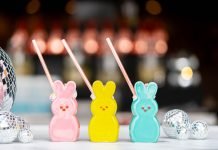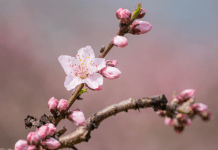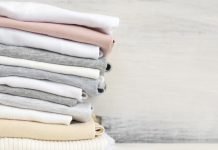With the holiday season quickly approaching, it’s important to ensure that you’re not gifting your friends or family toxic items that could be harmful to their health, or buying these items for yourself. Some products can be especially harmful to children if they are breathing in the toxins. Common chemicals are linked to cancer and other health effects. Continue reading to learn about some of the most common chemicals and safer alternatives as you start planning your holiday shopping.
Candles
Candles are a common household item and such a classic gift to give, but did you know most candles contain harmful toxins? The cheapest options on the market often are the most dangerous. Paraffin wax is most commonly used in candles and contains carcinogenic
properties. This means that by burning your favorite candle you could be exposing yourself or loved ones to toxins that are cancer-causing. When shopping for candles, it’s important to read and understand what they are made with. While there are regulations in the United States on how candles can be produced, sometimes those made in China or Taiwan can make their way over here and likely contain wicks that are made with lead. If you can’t live without candles, consider taking a little extra time when you’re picking out the perfect one:
● Choose unscented candles
● Buy candles made from all-natural ingredients, such as soy or beeswax
● Look for candles made with paper or cotton wix
Alternatively, consider battery-operated candles for the same glowing ambiance but avoid the harmful toxins.
Children’s Makeup
Studies show that makeup marketed towards children may contain traces of toxic chemicals that may harm their health in the long run. Play makeup often contains talcum powder, which can be contaminated with asbestos due to limited regulations on talcum powder. If exposed, your child could be at risk of developing serious lung problems in the future, including mesothelioma.
How does this happen? Unfortunately, not every single product is tested for harmful ingredients before being put on the shelves and sold. This means that even though there are rules and regulations in place, manufacturers don’t always follow them and just hope to not get caught.
If you’re planning to buy some play makeup for a child in your life this holiday season, consider buying all natural play products instead or making your own DIY versions. You can never be too safe when it comes to kid’s products, especially when their health is involved.
Pet Toys
If you have any fur babies or other kinds of pets, it’s important to consider their health when shopping for them for the holidays. Pet toys, just like children’s toys, often contain toxic chemicals because they make production costs lower. Common toxins found in pet toys include:
● Polyvinyl chloride (PVCs)
● Phthalates
● Bisphenol A (BPAs)
● Lead
● Formaldehyde
All of these toxins can wreak havoc on a pet’s health and internal systems. The best way to
keep your pet safe is to only purchase products from trustworthy, hazard-free manufacturers. Also, pay attention to the language used on the labels. If something says “natural” that doesn’t mean it’s free of harmful chemicals. However, if the packaging says “BPA-free” then it is typically safe for use because of the tests the product must pass before going on the shelves. When in doubt, call the company to ensure your pet is safe before giving them a new toy.
Clothing
The clothes we wear everyday could be potentially making us sick or harming our health. Before you get anyone a new sweater or pair of pajamas, it’s important to become knowledgeable on the elements that are used to make clothing.
During the manufacturing process of clothing, it’s estimated that 8,000 synthetic chemicals are used. Not only is this harmful to the people wearing the clothes, but also those making them and the environment.
If you’d like to avoid buying clothes that contain chemicals, consider the following advice:
● Seek out organically made fabrics, such as linen, cotton, or hemp that are dyed with
natural dyes
● Thrift items instead of buying brand new pieces
● Check the labels for certifications that mean the textiles were checked for harmful toxins
It’s also good practice to wash new clothes before wearing them to avoid skin reactions. If
shopping sustainably is too expensive, consider investing in basic pieces when you can, and
don’t be afraid to upcycle old or torn clothing to give it a longer life.
A Final Thought
While it’s difficult to make a ton of adjustments to the way we consume products all at once, it’s important to be knowledgeable in the topic of toxic products and do what we can to protect our health and the health of those around us. Before you make your holiday lists, take some time to strategize how you can minimize the harmful effects of toxins in products and see if there are any substitutions you can make.
It may not seem like it now, but making changes to your buying habits will make a lasting impact on your health and could make you feel better in the long run. What are some swaps you plan to make this holiday season?


















